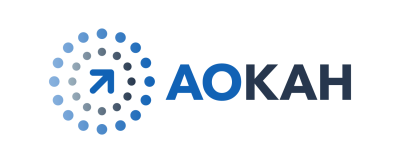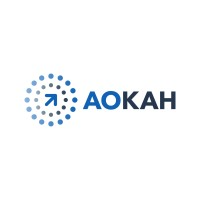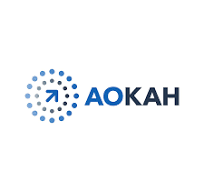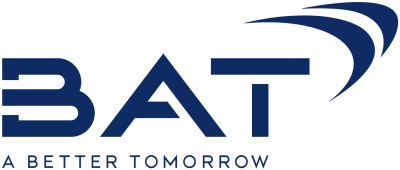Workshops & Conference Day One: May 19th, 2026
8:00 am - 9:00 am
SSOW2026 REGISTRATION OPENS!
Workshop A1
9:00 am - 10:20 am Workshop A1 THE FOUNDATIONS TO BUILDING A FUTURE-READY SHARED SERVICES STRATEGY Sumit Mitra - Chief Executive Officer, TESCO Global Business ServicesThis workshop is a perfect 101 guide to the foundational elements required to build a future ready shared services organisation, one that delivers sustained value beyond labour arbitrage and functional cost savings.
• Choosing the right operating model that fits your business needs: a deep dive into various operating models
• Defining scope and identifying responsibilities right from the beginning to have a clear role split between the shared services and retained organisation
• Discover the “need to knows” for location strategy: understand your new market, the talent capabilities and the opportunities for future growth
• Establish a clear roadmap for change, clarity and vision for your transformation
• Navigating the initial technological implementation: where do you start?
• Ensuring capability readiness, including skills mapping, targeted recruitment strategies, strong PMO oversight and structured knowledge transfer
• Focusing on service excellence and customer-centricity to build your competitive edge
Workshop A2
9:00 am - 10:20 am Workshop A2 STRATEGIC SOURCING TRANSFORMATION THROUGH VENDOR MANAGEMENTVendor management becomes a critical lever for driving sustainable cost optimisation and long-term competitive advantage. Join this session to hear how you can master vendor management and deliver strategic business outcomes.
• Identifying the vendors most critical to business outcomes and prioritising relationship management accordingly
• Building governance structures that foster transparency, trust and accountability
• Negotiating win–win agreements that incentivise innovation and value creation, not just cost savings
• Defining KPIs and scorecards that reflect strategic objectives, customer impact and operational performance
• Implementing continuous improvement programs with vendors to drive long-term results
Workshop A3
9:00 am - 10:20 am Workshop A3 THE FUTURE OF FINANCE: FROM CUSTOMER TO CLOSE WITH AGENTIC AI Brian Morgan - Senior Director, Strategy and Go To Market – Invoice to Cash, BlacklineThe next paradigm shift for the Office of the CFO is here: Agentic Financial Operations. This new operating model transforms static, periodic processes into a continuous, intelligent, and auditable system of orchestration.
This interactive workshop explores how to make Agentic Financial Operations a reality. We will introduce BlackLine Verity™, a comprehensive suite of trusted AI capabilities that delivers a new digital workforce organizations can use every day. We will demonstrate how to reframe your transformation strategy from the "outside-in," starting with the most critical and customer-facing processes to build momentum and drive immediate value.
• Starting from the Outside-In with Invoice-to-Cash (I2C): Deep-dive into how an AI-augmented workforce can transform the complex buyer-supplier relationship
• From Invoice-to-Cash Wins to Record-to-Report Impact: This is more than just simplifying reconciliations. We'll show how the intelligence and efficiency gained in Invoice-to-Cash, flow directly into the Record-to-Report cycle.
• Unifying Your Workforce with the "Automate, Assist, Human" Framework: See how a digital workforce of AI agents, directed by an AI team lead, can be applied in a practical framework
Workshop A4
9:00 am - 10:20 am Workshop A4 AGENTIC AI-EMPOWERED SERVICE MANAGEMENT: UNLOCKING THE NEXT LEVEL OF GBS MATURITY Dominik Loerts - Partner, Technology Consulting (Data & Analytics), Ernst & Young LtdFausto Grelli - Head of Enterprise Service Management, McDonald’s
As Global Business Services (GBS) organizations expand into broader functional scopes and deliver increasingly complex services, operating models and service management frameworks must evolve. Traditional workflows designed around ticket routing and reactive support are no longer sufficient. The rise of Agentic AI - AI that can act autonomously, make decisions, and execute work on behalf of users - is redefining how services are designed, orchestrated, and continuously improved.
This session explores how leading GBS organisations are harnessing Agentic AI capabilities to elevate service performance, reduce manual workload, and transform the employee experience.
• Redesign the Service Management Framework to connect processes, data, and journeys across a matrixed global organisation
• Establish business partnering roles and a unified “front door” experience enhanced by AI-driven guidance
• Deploy Agentic AI to transition from case handling to case prevention — resolving issues without tickets, anticipating client’s service requests, orchestrating workflows end-to-end, and enforcing policy automatically
• Use predictive insights and autonomous performance steering to optimize SLAs, drive continuous improvement, and measure value creation in real time
Fausto Grelli, Head of Enterprise Service Management, McDonald’s
Dominik Loerts, Partner, Technology Consulting (Data & Analytics), EY
Maria Saggese, GBS Solution Lead Partner Global & EMEIA, EY
Workshop A5
9:00 am - 10:20 am Workshop A5 DELIVERING TANGIBLE BUSINESS ADVANTAGE WITH AGENTIC AIAs the boundaries between human and machine intelligence overlap, the potential of Agentic AI to revolutionize Business Operations is becoming increasingly evident. This workshop will explore practical applications of Agentic AI within targeted functions, providing attendees with insights and strategies to harness its power to effect impactful transformation.
• Identify Agentic AI Use Cases: discover specific applications that can deliver tangible benefits within Shared Services organizations, such as automating document generation, improving customer service and optimizing processes.
• Promote security awareness: review privacy pitfalls to avoid with respect to purpose limitations and incorporate robust data governance with systematic reviews.
• Overcome challenges: learn to address common challenges associated with Agentic AI implementation, including data quality, ethical considerations and workforce integration
Workshop A6
9:00 am - 10:20 am Workshop A6 MASTERING E-INVOICING IMPLEMENTATION: LESSONS LEARNED AND BEST PRACTICESThis workshop will share key challenges and pitfalls encountered during e-invoicing projects. Join the session to hear practical insights on how to overcome key challenges from implementation hurdles to integration complexities.
• Typical challenges of e-invoicing implementation projects
• The obvious and not-so-obvious mistakes in early stages of implementation
• The reasons e-invoicing programs are often more time-consuming than expected
• To what extent companies are employing additional resources (e.g. external advisors, extra staff) to complete implementations
• What to know about integrating with other systems to avoid common pitfalls
Workshop A7
9:00 am - 10:20 am Workshop A7 GLOBAL PROCESS OWNERSHIP IN PRACTICE: TURNING END-TO-END AMBITION INTO MEASURABLE VALUEWorkshop A8
9:00 am - 10:20 am Workshop A8 A GAMECHANGER ON MINDSET ALIGNMENT TO DELIVER TRANSFORMATION IMPACT Phil Priest - SVP, GBS, IFF
10:20 am - 11:00 am
NETWORKING BREAK/WORKSHOP SWITCH OVER
Workshop B1
11:00 am - 12:20 pm Workshop B1 ACCELERATING FINANCE OUTCOMES BY REDUCING OPERATIONAL COMPLEXITY IN SSCs & GBS Jolente Habils - Senior Solutions Consultant, TrintechSSCs and GBS organisations are at the center of growing transaction volumes, tighter timelines, and increasingly complex finance processes. While they may not always own the close, their role in enabling efficient, accurate, and scalable finance operations is critical. This interactive workshop explores how SSC and GBS leaders are reducing operational complexity across high-volume finance processes. Through real transformation experiences and peer discussion, participants will share practical lessons and ideas that can be applied across different service models and levels of maturity.
• How operational complexity shows up in SSC and GBS environments—and why it keeps growing
• Practical lessons from transformation journeys within high-volume finance operations
• The role SSCs and GBS teams play in enabling faster, smoother finance outcomes (even without owning the close)
• Peer discussion on simplification strategies that improve efficiency, control, and stakeholder confidence
Workshop B2
11:00 am - 12:20 pm Workshop B2 LEVERAGING AUTOMATED & ASSISTED AI DRIVING VALUE IN THE OFFICE OF THE CFOThis workshop showcases how Autonomous Finance capabilities reduce manual effort, increase accuracy and free teams to focus on strategic initiatives. Attendees will see how automation and AI-guided insights work together to drive measurable business value.
• Understand where Automated vs. Assisted AI create the highest value in finance workflows
• Learn practical use cases across order-to-cash, credit, collections and forecasting
• Identify criteria for prioritizing AI opportunities and measuring ROI
• Develop a realistic roadmap for adoption, change management and scaling AI initiatives
Workshop B3
11:00 am - 12:20 pm Workshop B3 ORCHESTRATING THE NEXT GENERATION OF GLOBAL CAPABILITIES: WHERE AI WISDOM MEETS HUMAN EXECUTION Atul Vashistha - Chairman and CEO, AokahHemant Puthli - Chief Evangelist and Head of Product, Aokah
Despite access to global talent, robust platforms and transformation programs, most enterprises still face Global Capabilities execution failure, program slippage, unaligned teams, or delivery friction. This session introduces a new approach and showcases how Aokah integrates AI-driven foresight with human orchestration to help organisations build, scale and optimize global capabilities.
• Why global capability programs fail and what can we do about it?
• Introducing the Five Aokah Wisdom Foundations: Program, Geo, Ecosystem, Talent, Delivery
• How Service-as-Software elevates transformation by combining real-time insights, alignment, risk mapping, scaling pathways, and self-healing execution.
• How enterprises can architect multi-center, multi-vendor, and multi-capability models that are inherently resilient, adaptive, and outcome-driven
Workshop B4
11:00 am - 12:20 pm Workshop B4 DESIGNING FP&A CAPABILITIES IN GBS TO CREATE SCALE, IMPACT AND VALUESpeed and agility in planning, forecasting and analysis is a necessity rather than a luxury with the current business environment. When combined with the demands of meeting growth targets, cost reduction initiatives and increasing regulatory oversight, finance functions need to rethink their F&A capabilities urgently. This hands-on workshop will show you exactly the right
approach to develop these capabilities. We will focus our interactive exchange on selected target operating model elements as well as best practices for implementation
· Understanding and overcoming the key challenges when moving FP&A into the GBS environment
· Developing a step-by-step approach and sharing key steps in driving a successful implementation
· Sharing extensive results from recent studies on target operating models, best practices in implementation and performance management
Christian Willenbruch - Director, Finance Transformation Lead, EYAs automation at scale is transforming finance processes and operating models, GBS should play an even more pivotal role to increase service scope and impact in non-transactional disciplines like FP&A. Let’s turn challenges into opportunities and share insights and opinions on how to develop FP&A capabilities in GBS, enable integration and standardisation of services and impress business stakeholder with value-adding services. We will focus our interactive exchange on key elements to increase functional efficiency and impact, including operating model elements and best practices for implementation:
Workshop B5
11:00 am - 12:20 pm Workshop B5 CONVICTIONS, PROVOCATIONS AND FRAMEWORKS FOR REINVENTING GBS IN 2026 Rohitashwa Aggarwal - Partner, Everest GroupBuilding on Everest Group’s latest research, this workshop explores the evolving paradigm of the GBS sourcing models. Through a blend of forward-looking provocations and a practical sourcing-portfolio framework, delegates will uncover emerging trends, challenge traditional assumptions, and identify strategic opportunities to reinvent their GBS operating models.
• Learn how to build a balanced sourcing portfolio that integrates location strategy, vendor optimisation, and future-ready talent planning
• Challenge traditional GBS models and examine how shifting market forces are reshaping the value proposition
• Understand the strategic implications of AI, automation, and workforce transformation on sourcing, service delivery, and operating model design
Workshop B6
11:00 am - 12:20 pm Workshop B6 DEVELOPING EFFECTIVE PERFORMANCE MANAGEMENT METRICSThis workshop is designed to provide tangible insights on achieving service and operational excellence for finance shared services through effective performance management metrics
• Understand how KPIs can be used to monitor the efficiency of shared services functions like billing, payroll and accounts payable/receivable
• Developing and defining the most impactful GBS Process KPIs
• How to leverage the metrics to drive positive impact on automation and business outcome?
• How are we leveraging these metrics for strategy and digital transformation?
Workshop B7
11:00 am - 12:20 pm Workshop B7 DRIVING AP EXCELLENCE THROUGH TECHNOLOGY AND TRANSFORMATION IN SHARED SERVICE CENTERSWorkshop B8
11:00 am - 12:20 pm Workshop B8 ACCELERATING DIGITAL & AI ENABLED TRANSFORMATION Dan French - CEO, Consider SolutionsSteve Fox - Process Excellence Leader, Consider Solutions
12:20 pm - 1:30 pm
LUNCH IN THE EXPO HALL: NETWORKING WITH YOUR GBS & SHARED SERVICES FRIENDS
THE BIG IDEAS STAGE
1:30 pm - 1:40 pm
SSOW2026 GRAND OPENING: OPENING VIDEO & WELCOME FROM SSON!
1:40 pm - 1:50 pm
CHAIR’S OPENING REMARKS
1:50 pm - 2:15 pm
KEYNOTE CASE STUDY: HARDWIRING GBS WITH TECH AND AI AT MERCK DIGITAL ENTERPRISE SOLUTIONS
Alessandro De Luca -
Group CIO and Head of Digital Enterprise Solutions,
Merck Group
Annette Hamann - Head of Global Enterprise Solutions, Merck Group
This keynote explores Merck Group’s bold transformation journey, merging Global Business Services (GBS), Data & Digital, and IT organizations into a unified function: Digital Enterprise Solutions (DES). Join Alessandro and Annette to learn how this strategic integration is redefining expectations for Merck’s 4,000 strong GBS workforce through technology, data, automation and process excellence.
• Breaking down organizational silos: what does it look like when you integrate corporate processes, clean data, AI and innovative technologies under one structure?
• How is Merck DES shifting the GBS focus on customer experience?
• Realigning global process excellence and automation initiatives to deliver the next level efficiency
• A holistic approach to drive change and ensure cross-learning and cultural alignment throughout the merge
• Looking ahead: what’s next for Merck DES and the future of digital enablement
2:15 pm - 2:45 pm
CIO PANEL: THE NEXT FRONTIER OF GBS LEADERSHIP - WHY CIOS ARE BECOMING THE NEW STEWARDS OF GLOBAL BUSINESS SERVICES
Caroline Basyn -
Chief Digital and Information Officer & Global Business Services Officer,
The Adecco Group
Gunter Van Craen - Chief Digital and Information Officer and Member of the Executive Committee, Bekaert
As technology takes centre stage in driving GBS maturity and evolution, CIOs are stepping into a strategic ownership role - architecting connected platforms, integrating AI and automation and unlocking the power of enterprise data to deliver new sources of value. This forward-looking CIO keynote panel will explore:
• How the GBS ownership model is evolving from finance-led to technology-enabled transformation
• The CIO’s perspective on reimagining GBS as a digital, intelligent enterprise backbone
• Evolving the GBS delivery model and scaling AI adoption by reinforcing c critical partnership between CIOs, CFOs and CHROs in
• Building the future-ready operating model to deliver continuous innovation and new sources of enterprise value
• What potential challenges do CIOs face when leading next-generation GBS transformations?
Caroline Basyn, Chief Digital and Information Officer, The Adecco Group
Gunter Van Craen, Chief Digital and Information Officer, Global Shared Services Leader and Member of the ExCo, Bekaert

Caroline Basyn
Chief Digital and Information Officer & Global Business Services OfficerThe Adecco Group


Gunter Van Craen
Chief Digital and Information Officer and Member of the Executive CommitteeBekaert

2:45 pm - 3:15 pm
KEYNOTE PANEL: GBS 2036 - HOW AI AND GEOPOLITICS WILL RESHAPE THE NEXT DECADE OF VALUE CREATION
Edvinas Katilius -
Vice President Global Business Solutions,
Philip Morris International
Alexander Jochinger - CEO Engie GBS, Engie
3:15 pm - 3:45 pm
WHY ARE CUSTOMER-CENTRIC SERVICE PORTFOLIO AND CATALOGUE ARE GBS’S GATEWAY TO THE FUTURE?
Maria Saggese -
GBS Solution Lead Partner Global & Europe West,
EY
Fausto Grelli - Head of Enterprise Service Management, McDonald’s
Service catalogue and portfolios are vital for GBS organisations, enabling them to communicate effectively with customers using a consistent taxonomy and language. This customer-centric approach enhances the perceived value of GBS offerings and improves customer experience. However, many GBS organizations face challenges due to poorly defined and inconsistently structured service catalogues that prioritize internal terminology over customer understanding. Whilst some GBS invest in creating these resources, they often neglect ongoing maintenance.
• The necessity of a well-defined service catalogue - serving as GBS's customer-facing "menu" - and a strategic service portfolio for effective service management
• Explore strategies for developing these resources and transitioning from reactive to proactive service delivery.
• By leveraging AI, GBS can better anticipate business needs, drive innovation and facilitate growth. Join us to discover how to create a more dynamic and responsive GBS
3:45 pm - 4:15 pm
NETWORKING BREAK
SPLIT PLENARY & THEMED STAGES
SPLIT PLENARY STAGE
4:15 pm - 4:45 pm WITH THE RISE OF AUTOMATION – HOW CAN EUROPE REMAIN COMPETITIVE AS A LOCATION CHOICE? Mohit Bhatia - Former SVP & Head of Maersk Global Service Centers, Senior Advisor, CMA-CGM GBSWith automation and AI upending global value chains at unprecedented speed, Europe must act now or fall behind mature GCC hubs such as India, where faster technology uptake, deeper talent pools, and stronger cost advantages are shifting the global balance.
• How automation is reshaping traditional cost and productivity advantages—and how the industry must reinvent itself to stay ahead
• Europe’s potential to compete through high-value innovation, sustainability and skilled labour
• The role of policy, infrastructure and education in creating a resilient industrial ecosystem
• Comparative perspectives on how India and Europe are adapting to the automation revolution
SPLIT PLENARY STAGE
4:45 pm - 5:15 pm TRANSFORMING O2C WITH AI TO REVOLUTIONIZE COLLECTIONS, DISPUTE & CASH APP• Strategising for change: from legacy challenges to modernization opportunities
• Seamless transition: overcoming migration hurdles with AI and GenAI
• Continuous assessment: driving ongoing optimization
• Boosting cash flow: using automation and data intelligence to accelerate collections
• Scaling with efficiency: leveraging AI to expand operations smoothly
FOUNDATIONAL CAPABILITIES (LAUNCHING & TRANSITIONING)
4:15 pm - 4:45 pm REDEFINING CHANGE MANAGEMENT FOR THE DIGITAL AGE Grzegorz Ruszała - Senior Manager & OCM Lead, Adaptive Solutions & Advisory GroupThe AI revolution reshapes the art and science of planning and delivering change. Embrace the future of change management by exploring how AI can streamline the execution of initiatives and empower your GBS teams to navigate change with confidence and clarity. This session aims to inspire you to apply the latest technological solutions to the most impactful use cases in the OCM field. Join us and learn practical strategies to accelerate change adoption while maintaining strong employee engagement:
· Leverage historical and real-time data to forecast change impacts and identify potential risks
· Use Natural Language Processing tools to analyse sentiment from surveys and communications, pinpointing areas of resistance and opportunities for more targeted messaging
· Enhance stakeholder engagement by automating routine queries and providing real-time support during transitions
· Using AI-driven insights, develop tailored strategies for different employee groups, ensuring that communications and training align with individual needs
· Streamline routine processes so that change managers can focus on strategic decision-making
· Build a Human-AI Partnership by learning best practices for integrating AI without losing sight of personal interactions
FOUNDATIONAL CAPABILITIES (LAUNCHING & TRANSITIONING)
4:45 pm - 5:15 pm DEVELOPING GBS OPERATING MODELS AND CAPABILITIES FROM THE GROUND UP TO ENABLE BUSINESS FLEXIBILITY AND SCALABILITY Vanessa Rechter - Vice President, Global Business Services, CopelandPawel Kalinowski - Head of GBS Strategy and Service Management, Organon USA, Inc
• Key insights on the journey of launching GBS: which factors and elements are crucial for success?
• Developing a true multi-functional solution hub - all from scratch
• Creating value from day one: building service management, project management, operational excellence and other key capabilities
• Getting the culture right from the get-go
SERVICE & SCOPE EXPANSION
4:15 pm - 4:45 pm CASE STUDY: DURACELL'S GEOGRAPHIC, FUNCTIONAL AND CAPABILITY EXPANSION - KEY LEARNINGS ON KNOLEDGE TRANSFER, TALENT DEVELOPMENT AND STAKEHOLDER MANAGEMENTFrom its established centre in Barcelona, Duracell is embarking on a strategic expansion with the launch of a new centre in Costa Rica, integrating additional functions and moving towards an end-to-end service delivery model. Join Christian as he shares the key learnings from this journey, including:
· Overcoming a culture of “abundance” to create a true transformation platform
· How not to lose focus when expanding geographically and functionally, and while maturing the delivery model
· Ensuring transformation success by focusing on knowledge transfer and talent development
· Building a flexible and scalable global service delivery model
SERVICE & SCOPE EXPANSION
4:45 pm - 5:15 pm EXPANDING SERVICE HORIZONS: EVOLVING FROM A TRADITIONAL BACK-OFFICE ROLE TO A VALUE ENABLING PARTNER Michael van der Steen - Vice President Cencora Business Services, CencoraEvolving from a traditional back-office function to a value-enabling partner requires redefining service scope, leveraging technology, and aligning closely with business goals to drive measurable impact and strategic growth.
• Explore strategies to transition back-office operations into proactive, value-generating partners supporting core business objectives
• Leverage digital tools and analytics to provide actionable insights and enhance decision-making across the organization
• Align services with business priorities to move beyond transactional support toward strategic influence and measurable outcomes
• Foster cross-functional collaboration and a culture of innovation to expand the service scope and demonstrate value
• Actively engaging with business units to identify their need
GBS REINVENTION
4:15 pm - 4:45 pm S4HANA AS THE CONERSTONE FOR GBS REINVENTION: DESIGNING THE ROADMAP TO SUCCESS Ana Martins - Head of GBS, SyensqoWith the deadline for S4HANA transformation growing ever closer, organisations are evaluating their transformation strategies and how they can get the most out of this investment. This case study will explore how Syensqo are using this as an opportunity to redesign global processes and reach a new level of standardisation. This session will uncover how their S4HANA journey is tied to the goal of GBS taking on 50% of the organisations business services, ensuring that the whole business is bought into the roadmap.
• Leapfrogging with S4HANA: the journey towards globally standard processes and data - what are the key challenges and best practices?
• Aligning the operating model with standard global processes and enabling standard service management
• Focusing on customer experience and business engagement for a better outcome
• Driving effective change agenda to make go-live easy and frictionless
• Paving the road to digital GBS
GBS REINVENTION
4:45 pm - 5:15 pm EMBRACE YOUR JOURNEY TOWARDS AI EMPOWERED ORGANISATION Pawel Plocki - Managing Director Global Business Services, TRUMPFRobert Godziszewski - Executive Business Director, Adaptive Solutions Advisory Group
- Address the adoption barriers in GBS: trust in AI and operating model change
- Reinventing GBS capabilities that make AI “business-as-usual”
- Proof points of reinvention with “show-me” example
AI & DIGITAL TRANSFORMATION
4:15 pm - 4:45 pm CASE STUDY: FROM RPA TO AGENTIC AUTOMATION: SCALING BEYOND 500 BOTS THROUGH A HYBRID, MULTI-TOOL STRATEGYOver the past few years, what began as a small proof of concept with attended finance bots from the Landmark Group has rapidly evolved into an automation ecosystem of more than 500 bots operating across multiple functions.
This session will share how the team scaled, why they diversified their tooling strategy, and how they are repositioning the automation estate for the next generation of digital operations.
• Establish a disciplined and empowered CoE to scale automation rapidly while ensuring enterprise-wide governance
• Design automation intentionally, not as pure-play RPA, but as a layered system where intelligence, orchestration, and integration drive value
• Transition towards agentic workflows by consolidating the bot fleet and re-aligning priorities and capabilities
AI & DIGITAL TRANSFORMATION
4:45 pm - 5:15 pm PANEL DISCUSSION: FROM DATA CHAOS TO CLARITY – REAL-TIME INSIGHTS FOR AI FOUNDATION Natalia Mietek-Staszewska - IT&D Business Process Owner - RTR, ReckittSibel Ibram - VRO Lead, Record to Report Business Excellence, BAT Global Business Services
Pieter de Bruijn Bruijn - VP Accounting EMEA, Digital Realty
Finance teams are under increasing pressure to manage ever-expanding data volumes while still delivering accurate, real-time insights. Clean, centralised, and intelligently structured data has become the backbone of modern finance transformation, fuelling automation, accelerating reporting cycles, and enabling more agile, data-driven decision-making. In this panel discussion, discover how live reporting and AI-enabled processes help organisations harness large, complex data sets, scale efficiently, and stay competitive in a rapidly changing environment.
• Unlock faster insights by storing, processing, and instantly accessing massive data sets
• Anticipate business needs by mining historical data to uncover patterns, trends, and predictive signals
• Optimise resources through dynamic, real-time reporting that allows teams to reallocate effort where it’s needed most
• Ensure consistency and control by standardising data practices across systems, regions, and business units
5:15 pm - 5:20 pm
MOVING BACK TO THE PLENARY ROOM
THE BIG IDEAS STAGE
5:20 pm - 5:50 pm
GBS IN DEMISE? IS THIS THE END OF GBS – OR ITS DEFININING MOMENT?
Jay Desai -
Vice President, IT Infrastructure & Operations,
JTI
Sumit Mitra - Chief Executive Officer, Tesco Business Solutions
In an anonymous interview, a former GBS leader issues a stark warning: “Global Business Services, as we know it, will cease to exist.” We’ve heard such predictions before - but this time, the threat feels real. The rapid rise of AI, the collapse of labour arbitrage and the shift toward distributed, digital operating models are rewriting the rules of enterprise services.
In this provocative session, we’ll put GBS leaders under the spotlight — and under scrutiny. Senior business executives will challenge them with the hard questions they’re already asking in boardrooms:
• As AI matures, do we still need GBS? Can automation, GenAI and self-service models deliver what shared services once promised?
• If labour arbitrage is gone, what’s left? When talent can work from anywhere, does the delivery centre model still make sense?
• Has GBS delivered transformation (as they have been promising for years) - or just efficiency?
This is not a session for the faint-hearted. Expect uncomfortable truths, challenging dialogue and a forward-looking debate on whether GBS is in demise - or on the verge of its most important transformation yet.
5:50 pm - 6:15 pm
SHARED SERVICES & GBS STATE OF THE INDUSTRY: UNLOCKING THE NEXT FRONTIER OF VALUE
Tom Bangemann -
Head of Data Development & Research,
SSON Research & Analytics
As GBS models expand beyond finance, HR, and IT into supply chain, commercial, and innovation functions, understanding where the industry truly stands has never been more crucial.
In this high-impact session, SSON Research & Analytics unveils brand-new insights from our 2026 Global State of the Industry, GBS, and Location Strategy surveys—offering the most comprehensive, data-driven view of today’s Shared Services and GBS landscape.
We’ll reveal:
- How GBS is rapidly evolving into a strategic talent hub
- What’s working (and what’s not) in the cost vs. value equation
- How leading organizations are leveraging automation and analytics to accelerate maturity
- The latest location strategy trends, backed by real investment patterns and talent dynamics
- And what these shifts mean for your next strategic move
Whether you’re building foundational capabilities or leading next-gen operations, this session delivers exclusive benchmarking and fresh market intelligence to help you seize the next wave of GBS value creation.












































































